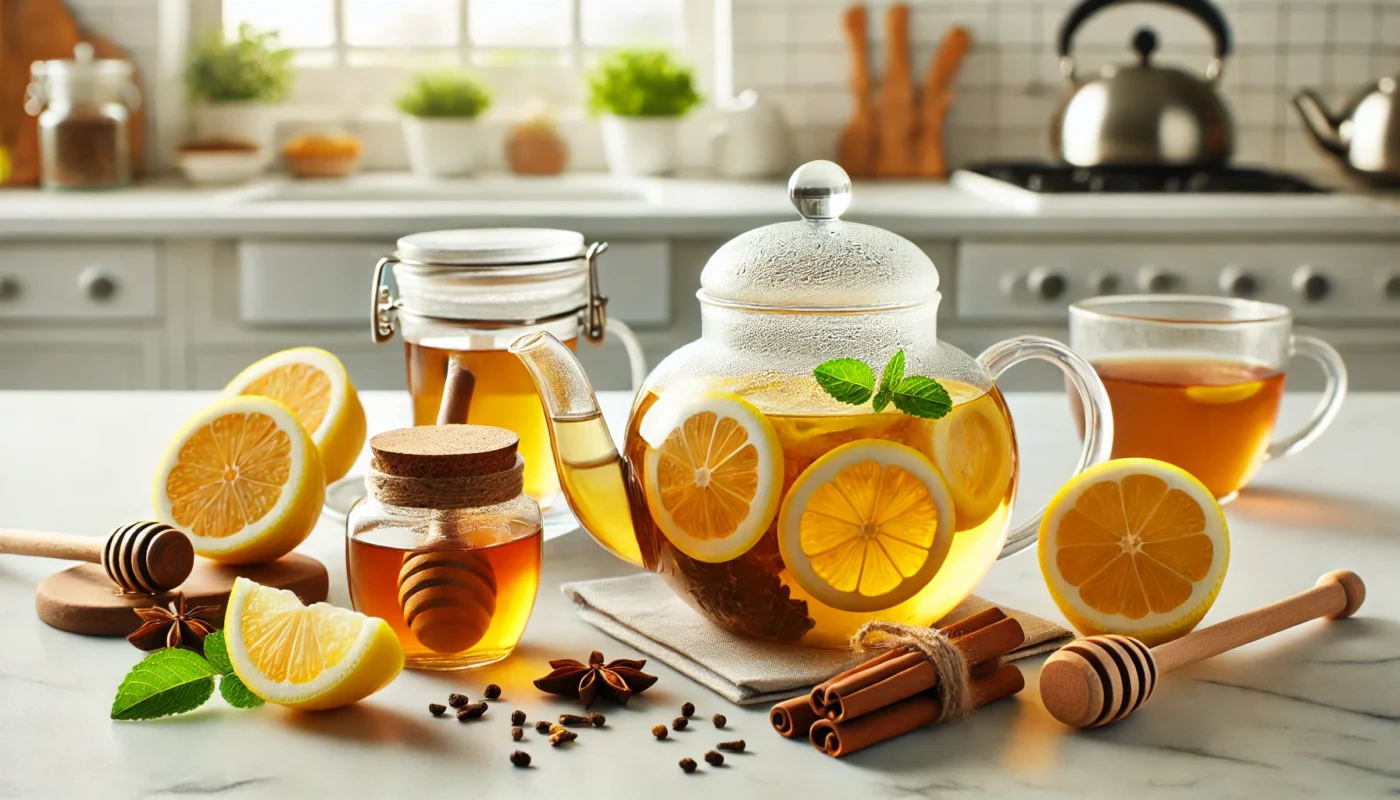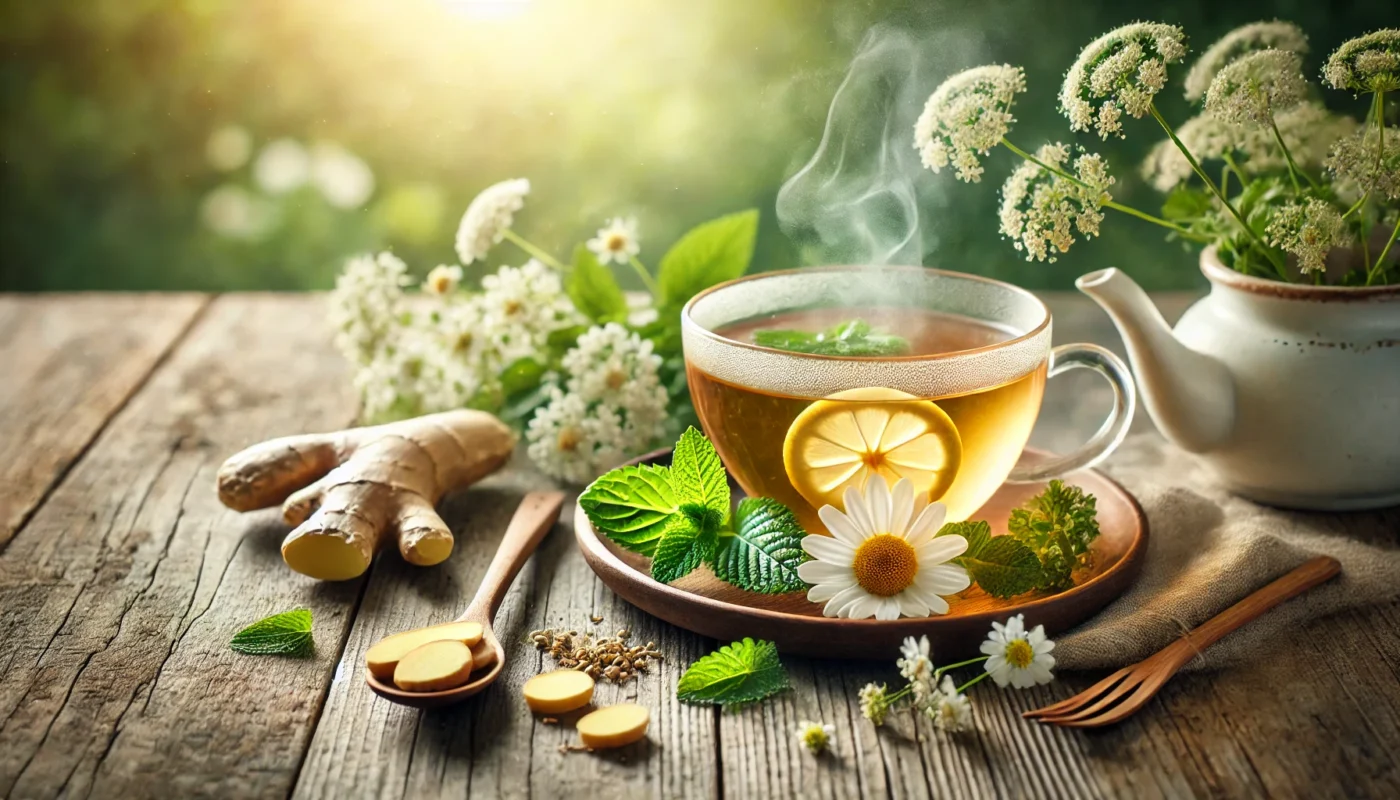Hormones play a crucial role in our bodies. They regulate everything from mood to metabolism.
However, maintaining hormonal balance can be a challenge. Factors like stress, diet, and lifestyle can easily throw our hormones out of whack.
Enter hormone balancing tea. This herbal concoction promises to help regulate hormones naturally.
But what exactly is hormone balancing tea? How does it work? And most importantly, can it really help improve your health and wellbeing?
In this article, we’ll delve into the science behind hormone balancing tea. We’ll explore its potential benefits, how to incorporate it into your routine, and what to consider before starting.
Whether you’re a fitness enthusiast, a health enthusiast, or a medical patient, this guide will provide you with practical, in-depth information about this holistic approach to health.
You may also like: Hypertension and Sugar: The Hidden Risk You Need to Know
Understanding Hormonal Imbalance
Hormonal imbalance occurs when there is too much or too little of a hormone in the bloodstream. These imbalances can affect bodily functions, including mood and energy levels.
Symptoms of hormonal imbalances vary widely. Common signs include fatigue, weight gain, and mood swings. Sleep disturbances and reproductive issues may also indicate hormonal issues.
Several factors contribute to hormonal imbalances, including stress and poor diet. Environmental toxins and certain medications can also disrupt hormone levels.
To better understand hormonal imbalances, consider the following symptoms:
- Irregular menstrual cycles or menopause symptoms
- Unexplained weight gain or loss
- Persistent fatigue and mood changes
It’s crucial to address these symptoms early. Left unmanaged, hormonal imbalances can lead to more serious health problems.
Identifying and understanding the root cause is essential for effective treatment. Hormone balancing teas can play a supportive role, aiding the body in achieving equilibrium naturally.
The Science of Hormone Balancing Teas
Hormone balancing teas harness the power of herbs known for their medicinal properties. These herbs interact with the body’s systems to promote hormonal equilibrium.
Scientific research supports the efficacy of many herbs found in these teas. Herbs like spearmint and chasteberry have been studied for their hormone-regulating abilities.
Adaptogens play a critical role in hormonal health. These natural substances help the body cope with stress, a major contributor to hormonal imbalance.
The mechanisms behind hormone balancing teas are complex. They often involve modulating stress hormones and supporting endocrine function.
Clinical studies highlight the benefits of certain herbs:
- Spearmint: Known to reduce androgens, beneficial for conditions like PCOS.
- Chasteberry: May help regulate prolactin and support menstrual health.
- Red Clover: Contains isoflavones that mimic estrogen, aiding in menopause symptoms.
Incorporating these teas into a daily routine offers a natural approach to hormone health. The scientific backing provides a solid foundation for their use as a complementary therapy.
Key Herbs and Their Roles
Various herbs play prominent roles in hormone balancing. Each offers unique benefits, contributing to overall hormonal health.
Spearmint is widely used for managing PCOS symptoms. It helps reduce androgen levels, combating excessive hair growth and acne.
Another notable herb, chasteberry, has a long history of use for reproductive health. It’s known for balancing hormones related to menstruation and menopause.
Red clover contains plant-based estrogens, beneficial for women experiencing menopause. It can alleviate hot flashes and other symptoms.
Ashwagandha is an adaptogen that supports adrenal health. It helps in regulating cortisol levels, minimizing stress-induced hormonal fluctuations.
Maca root is revered for balancing female hormones and enhancing libido. It’s rich in nutrients that support energy and stamina.
Dong quai, often called “female ginseng,” is used to treat menstrual irregularities. It promotes blood flow and reduces inflammation.
The following herbs are commonly included in hormone balancing teas:
- Milk Thistle: Supports liver health, aiding in detoxification and hormone clearance.
- Tulsi (Holy Basil): Acts as an adaptogen, reducing stress and promoting balance.
- Licorice root: Regulates adrenal function, helping to stabilize cortisol levels.
- Ginger: Known for its anti-inflammatory properties, supports digestion and hormonal health.
Understanding these herbs and their specific benefits is key to choosing the right tea. The synergy between them can significantly enhance their effectiveness, making them a powerful ally in managing hormonal health.

Health Benefits for Women
Hormone balancing teas offer numerous benefits tailored to women’s health. These teas address specific conditions and symptoms that many women face throughout their lives.
Menstrual irregularities and discomfort are common concerns. Hormone balancing teas can help regulate cycles and alleviate premenstrual syndrome (PMS) symptoms like bloating and mood swings.
For women experiencing menopause, these teas can be a natural remedy. Ingredients like red clover and black cohosh help reduce hot flashes and night sweats, easing the transition.
Reproductive health benefits are another reason women turn to these teas. Herbs like chasteberry support fertility by balancing prolactin levels and improving luteal phase defects.
Hormonal acne is often a distressing issue. Spearmint tea has shown promise in reducing androgen levels, which can help clear acne, providing clearer, healthier skin.
Overall, incorporating hormone balancing teas can enhance a woman’s quality of life. They offer a natural solution to hormonal challenges, promoting a sense of wellbeing and balance.
Health Benefits for Men
Hormone balancing teas aren’t just for women—they offer significant benefits for men as well. One key area of focus is supporting healthy testosterone levels, which are crucial for energy, muscle mass, and libido.
Many men experience stress-related hormonal imbalances. Adaptogenic herbs, such as ginseng, found in these teas can help manage stress, thereby promoting hormonal equilibrium.
Prostate health is another concern. Ingredients like saw palmetto in hormone balancing teas can support prostate function and urinary health, addressing issues as men age.
Lastly, these teas aid in reducing inflammation—a common contributor to hormonal disruptions. Anti-inflammatory herbs like ginger and turmeric play a role in easing symptoms and promoting overall health.
Incorporating these teas can provide men with a natural pathway to manage hormonal health, potentially enhancing vitality and longevity.
How to Incorporate Hormone Balancing Tea into Your Routine
Adding hormone balancing tea to your daily schedule is simple and rewarding. Begin by choosing a time when you can drink it consistently, like morning or evening.
Consider starting with one to two cups per day. Consistency is key to allowing your body to benefit from the herbs over time.
Pair your tea ritual with calming activities for added benefits. Reading or practicing deep breathing can enhance the tea’s calming effects.
Create a list to personalize your experience:
- Choose your favorite herbs.
- Experiment with flavors.
- Keep a journal to track changes.
Be mindful of how your body responds. Noting any improvements or side effects helps tailor the regimen to your needs.
Brewing the Perfect Cup
Brewing a perfect cup is easy with a few steps. Start with fresh, filtered water to preserve the tea’s delicate flavors.
Heat the water to the recommended temperature, usually around 200°F for herbal teas. Use one teaspoon of loose tea or one tea bag per cup.
Steep for 5 to 10 minutes, depending on taste preference. Enjoy your tea leisurely, savoring the process as part of your wellness routine.
Potential Side Effects and Considerations
While hormone balancing teas are generally safe, it’s essential to know potential side effects. Some herbs may interact with medications.
Common symptoms might include mild digestive upset or allergic reactions. Always start with a small dose to gauge your body’s response.
Consult a healthcare provider before starting any new herbal regimen. This is crucial if you have existing health conditions or take other supplements. It’s wise to avoid overconsumption; stick to recommended dosages for optimal benefits without adverse effects.
Complementary Practices for Hormonal Health
Balancing hormones involves more than just drinking tea. Integrating complementary practices amplifies the benefits.
Lifestyle changes play a key role in hormone health. Regular exercise supports hormonal balance by managing stress and weight.
A balanced diet is equally vital. Foods rich in omega-3 fatty acids and antioxidants nourish the endocrine system.
Mindfulness practices can alleviate stress, a known disruptor of hormones. Techniques such as yoga and meditation promote relaxation and balance.
Consider these complementary practices alongside hormone balancing tea:
- Engage in regular physical activity.
- Eat a nutrient-dense, balanced diet.
- Practice mindfulness techniques daily.
- Prioritize quality sleep and rest.
- Stay hydrated throughout the day.
Combining these strategies creates a comprehensive approach. Each element supports the others, contributing to overall wellness.

Conclusion: Embracing a Holistic Approach
Achieving hormonal balance is a multifaceted journey. It’s essential to consider both natural remedies and lifestyle choices. Hormone balancing teas offer gentle support in this process.
However, they work best as part of a broader strategy. Integrating dietary changes, exercise, and mindfulness enriches this approach. It’s crucial to see the whole picture of wellness.
By combining these elements, you empower your body to heal and thrive. Consistency and patience are keys to seeing results. Embrace this holistic path for sustainable health and balance in life.
Further Reading
CentreSpringMD: A Guide to Hormone Balancing Teas
Happy Healthy Hippie: 10 Herbal Hormone Balance Teas For Women
Plate and Canvas: The 10 Best Teas for Hormone Balance
hormone balancing tea, hormonal health, herbal remedies, women’s health, men’s health, adaptogens, natural remedies, PCOS, menopause, reproductive health, stress management, wellness, herbal tea benefits, holistic health, dietary changes, mindfulness practices
Important Note: The information contained in this article is for general informational purposes only, and should not be construed as health or medical advice, nor is it intended to diagnose, prevent, treat, or cure any disease or health condition. Before embarking on any diet, fitness regimen, or program of nutritional supplementation, it is advisable to consult your healthcare professional in order to determine its safety and probable efficacy in terms of your individual state of health.
Regarding Nutritional Supplements Or Other Non-Prescription Health Products: If any nutritional supplements or other non-prescription health products are mentioned in the foregoing article, any claims or statements made about them have not been evaluated by the U.S. Food and Drug Administration, and such nutritional supplements or other health products are not intended to diagnose, treat, cure, or prevent any disease.

